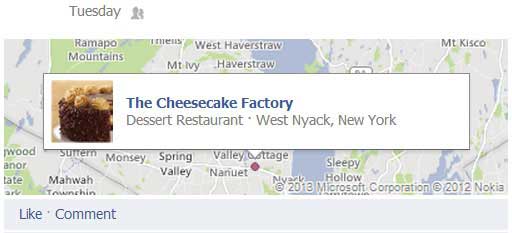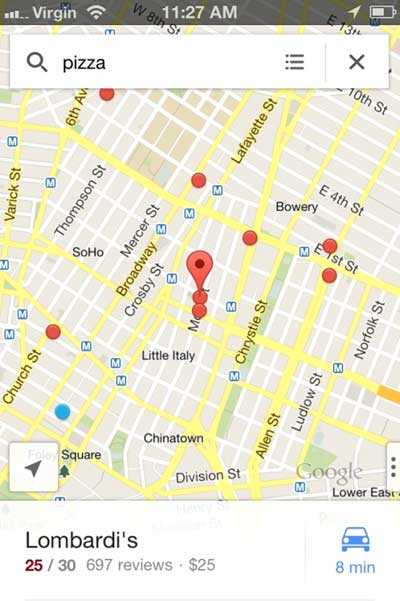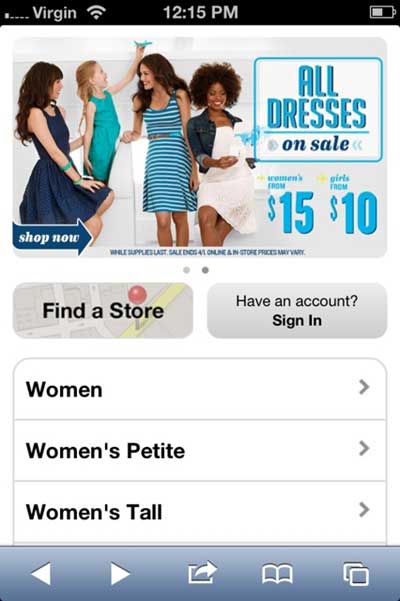A recent study projected that mobile devices will be responsible for 15% of all retail e-commerce in 2013. It also projected that mobile customers will spend a total of $24 billion in 2013 and $24.32 billion by 2016. Those are figures you can't afford to ignore.
A mobile marketing strategy is crucial to an online retailer's success these days, and here's how to get yours in shape.
Mobile Social Media Apps to Promote Your Local Business
When used correctly, mobile applications can have a significant and positive impact on user engagement, social interaction, and word-of-mouth marketing.

Instagram has grown in popularity as a photo-sharing app. The opportunity for a retailer with both an online and a brick-and-mortar presence is that users can take photos of your products in the store, and then share them with their followers online. In addition, an internet retailer may post their products and customer photos to an Instagram feed. For example, online shoe retailer Jildor Shoes has an Instagram feed linked to its Facebook page. Customers may then search for the hashtag #jildorshoes to view the feed and then click through to the website.

The mobile Facebook app promotes social interaction by allowing customers to check in to your business location. When users check in it provides a notice on their Facebook wall, which then links to your company's Facebook page. The result is exposure to the user's friends—likely people with similar tastes and interests, who may click through to your website.
Foursquare
Foursquare is great for brick-and-mortar businesses. The app uses the phone's GPS to locate users and list nearby attractions. If you claim your business on Foursquare, then users will see your businesses location listed on a map of the surrounding area as a suggestion when people search for similar establishments. You also have the opportunity to advertise on the platform.
Google Maps

Google Maps will help you reach new customers by providing easy access to essential business information. Potential customers won't have to fumble through a phone book to find your business address or phone number. Interactive maps like this help people find your business faster and more efficiently. For example, you can search for "pizza," and through the use of geo-positioning technology Google Maps will show a list of pizza places in your neighborhood or geographic region. This app shows users the businesses address, phone number, and even reviews.
Responsive Website Design and Mobile Websites
Once you've realized the benefits that a mobile presence can have on your business, the next step is to brainstorm how your website will function for mobile users. There are two different styles of website design for mobile devices: responsive design and mobile design.
Responsive Design
Responsive design has grown in popularity recently and doesn't require developing an entirely new website from scratch. This technology detects your browser size and adjusts the website's layout accordingly. As a result, responsive websites can be optimized for user experience, based on the device and its display resolution. For instance, the iPhone 4 has a display of 640 x 960 when held vertically. A responsive design would adjust your website to fit the 640 x 960 display to reduce horizontal scrolling. A mobile device or smartphone with a lower resolution may instead display your top navigation as a vertical stack instead of horizontally, to improve readability.
Mobile Website Design

Some companies may opt to create a completely different website for mobile users. The benefit of creating a mobile version of your website is in its simplicity. Some phones cannot load certain graphics or text, so having a stripped down version of your site will make it accessible to more mobile users. In addition, the code and imagery may be much lighter (i.e., fewer kilobytes) than that of a responsive website, meaning that pages may load faster when connection speed is slow. The best mobile websites are simple and easy to navigate with no popups, iFrames, or horizontal scrolling required. A great example of a mobile site is Old Navy's.
SEO
Mobile keywords are not always the same as PC keywords. They are typically shorter and easier to type, since most users are on the go and want to minimize their all-thumbs typing. For example a PC user will type in "cute Anne Cole bathing suits for women," but a mobile user may key in "Anne Cole swimwear." To get an idea of what keywords mobile users search for, dig into your analytics and filter for mobile traffic. Then, optimize your website for those keywords and track the results.
Email Marketing
Email marketing to the mobile audience should also be carefully tailored. Best-practices include providing an alternative text-only version of a message for email clients that are not HTML enabled. Ambitious companies will take this a step further by asking users how they will view their emails—either on a computer or on a mobile device. They'll then segment this list and send design to each of the lists.
The Underlying Benefits to Your Business
Take the time to develop your mobile marketing strategy and take advantage of this rapidly growing market. Consider using popular social media apps as part of a comprehensive e-commerce strategy to increase brand awareness and engagement, and have your website design optimized for mobile users. The improved mobile experience will naturally lead to better conversion and increased sales.



